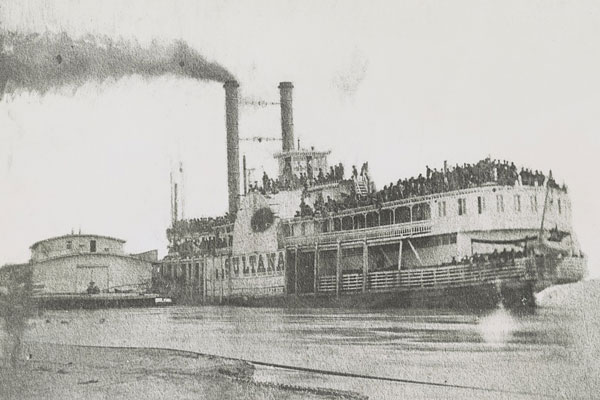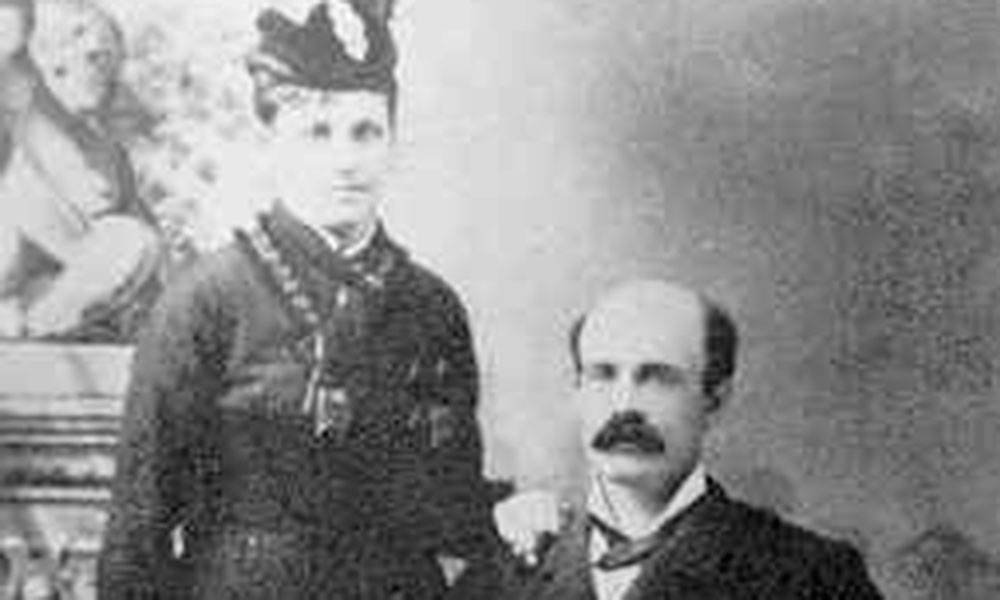 On April 27, 1865, the worst maritime disaster in United States history occurred when three of four boilers on the steamship Sultana exploded and the paddle wheeler imploded in debris, flames and bodies at 2 a.m. into the flooding Mississippi River near Memphis, Tennessee.
On April 27, 1865, the worst maritime disaster in United States history occurred when three of four boilers on the steamship Sultana exploded and the paddle wheeler imploded in debris, flames and bodies at 2 a.m. into the flooding Mississippi River near Memphis, Tennessee.
Over 1,800 of its 2,427 passengers—most of them recently released Union POWs from Southern prison camps—including Andersonville—were killed either by the explosion, drowning, hypothermia or burns. Two hundred survivors died after being rescued. The ship’s legal capacity was 375 passengers and 85 crew members, but Lt. Col. Reuben Hatch, a corrupt quartermaster in Vicksburg, convinced Capt. J. Cass Mason of the Sultana that if Mason would pack his steamer with returning prisoners that Hatch would share a percentage of the fare of $5 per enlisted man and $10 per officer that the government was paying captains to take Union soldiers back home.
With many of the survivors taken to Memphis, the ides of war were quickly forgotten as the citizens of the Tennessee River city rushed to help the wounded and injured. Capt. Mason was killed in the accident and his compatriots complicit in the crime never served time for their gross negligence and greed. Numerous monuments were erected in honor of the victims, including in Memphis, where scores of the veterans, who survived the war and prison camp with the dream of going cut short, are buried in the Memphis National Cemetery.






